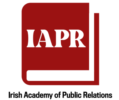The coronavirus has caused many devastating moments in 2020 and it still continues. What some thought may have been a short-lived isolated epidemic, instead turned out to be a global crisis. No one was left unscathed. The rapid spread had many seeking methods to curb it, and as death tolls rose pharmaceutical companies rushed to find a long-term remedy. In an intervention to counter the virus, AstraZeneca partnered with Oxford University to create a much-needed vaccine.
News of their success was announced in November 2020. It was reported that the vaccine created was up to 90% effective against the coronavirus. However, within days AstraZeneca acknowledged a pertinent error in the dosage given to some study recipients during trial, amongst other irregularities. This immediately caused suspicion on whether the vaccine’s efficacy initially reported was accurate, and if the data errors were an oversight or deliberate omissions. As a result, questions of the company’s reliability and transparency overshadowed their efforts to introduce a solution to the virus.

Regaining of trust and shifting blame
In an attempt to regain public trust, Menelas Pangalos, Executive Vice President of Research and Development at AstraZeneca tried to shift blame, stating that a contractor was at fault, and once discovered the company sought immediate action to correct it. He further defended the way testing was handled by the company, and their public disclosures.
Additionally, reporting transparency sparked further concerns. Specific officials were provided with information, but none of it was shared with the public. Overall, these complications delayed availability and temporarily tarnished the promising results of the vaccine.

Instead, the premature delivery of results, that were deficient in their findings, was one of the major issues outlined in this matter. Moreover, reporting was selective and inconsistent, leading to a lack of transparency. The public was left to form their own opinions and depend on updates, other than those of the company. In fact, the initial disclosure of results was made by the head of the flagship federal vaccine initiative, not the company.
The importance of first-hand information
During a crisis it is crucial that all stakeholders, both internal and external are duly informed, with necessary updates and probable solutions. This offers first-hand information, which creates confidence, and reinforces the establishment’s stance on the crisis. Although challenging, communication during a crisis should be clear, consistent and factual.
In the case of AstraZeneca, although they may have been proactive with their crisis plan, they seemed unprepared for what occurred. Their reaction to the situation was vague and detached, setting off questions regarding their crisis protocol. The breakdown in communication further allowed the matter to escalate and caused mistrust. In examining this case the following was done correctly:
- Some use of a crisis plan
- Immediate statement release
- Use of an executive as a spokesperson
- Problem was identified and made public
- The next steps were outlined
- Spokesperson/Company seemed in control
While on the other hand, the following deficiencies were observed:
- Lack of regular information
- Media was seldom engaged
- Crisis was first reported by third-party rather than from the company itself.
- Following preliminary statements, the public were mostly uninformed
- Lack of empathy
- Blamed others rather than take responsibility
- Missed opportunities to reassure/improve confidence with the public
Key takeaways and things I would have done differently:
- Rather than improvise, reassess your crisis plan and allow for flexibility to accommodate any situation.
- Embrace accountability from the start
- Foster an environment of accountability beginning at the executive level
- Evaluate every step taken to ensure it meets the intended impact
- Conduct a thorough assessment post crisis, with the intent of capturing valuable lessons learnt, and areas requiring change.
